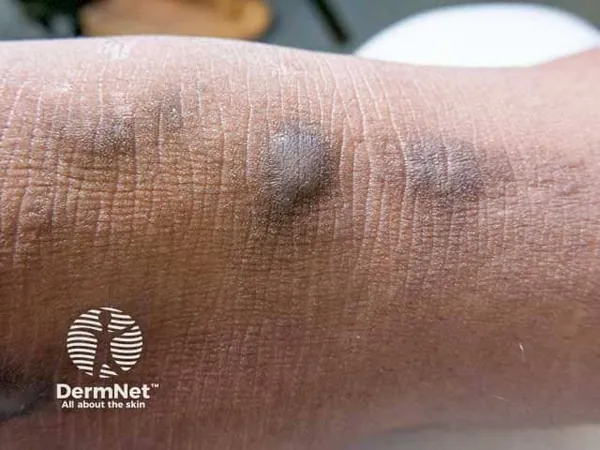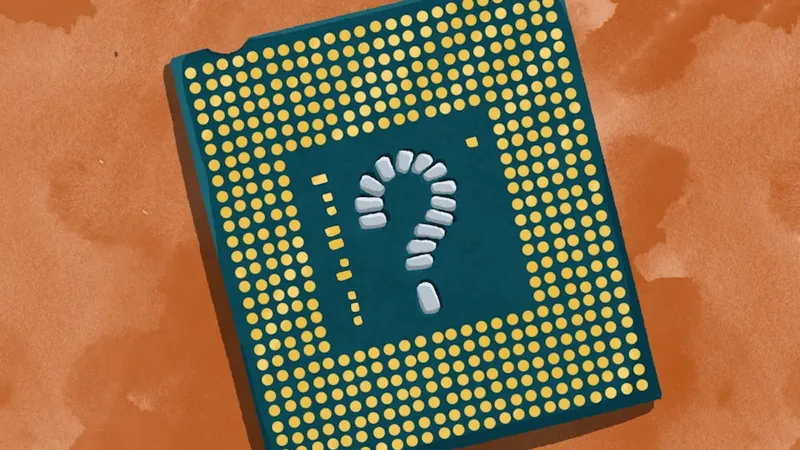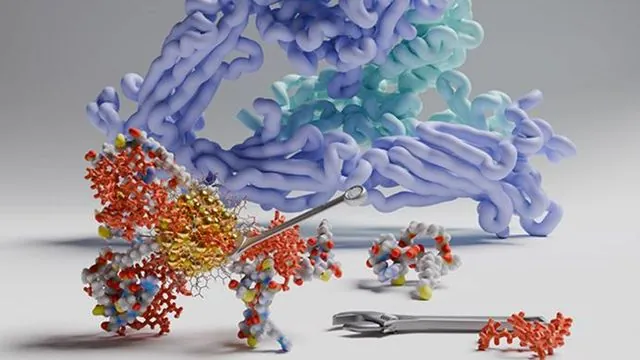
Breakthrough Treatment: Dupilumab Significantly Lessens Lesions in Prurigo Nodularis Patients
2024-11-19
Author: Yu
Prurigo nodularis (PN) is a chronic skin condition that presents numerous challenges for effective management, particularly when patients do not respond to traditional topical therapies. Exciting new findings from two large-scale phase 3 trials presented at the recent Society of Dermatology Physician Associates 22nd Annual Fall Dermatology Conference unveil the remarkable efficacy of dupilumab, a monoclonal antibody that targets the IL-4 receptor alpha, in diminishing lesion burden and enhancing outcomes for individuals suffering from PN.
In these studies, researchers discovered that over 70% of dupilumab-treated patients experienced more than 50% reduction in lesion healing, a stark contrast to the less than 40% from those given a placebo over the course of 24 weeks. The researchers emphasized the need to recognize that PN is a diverse disease and that all lesion types should be monitored to gauge patient progress effectively.
Study Details
The trials, known as LIBERTY-PN PRIME (NCT04183335) and PRIME2 (NCT04202679), focused on adults diagnosed with PN, specifically those exhibiting 20 or more nodules along with severe itching. The 24-week randomized, double-blind, placebo-controlled studies involved patients who were inadequately managed with topical treatments or were poorly suited for such therapies. Participants were administered 300 mg of dupilumab subcutaneously every two weeks after an initial 600 mg dose or matched with a placebo. Outcomes were measured using the Prurigo Activity and Severity (PAS) score, which allowed for a comprehensive analysis of various lesion types and healing statistics.
Key Findings
The results demonstrated that dupilumab had a substantial impact on reducing lesion burden across various lesion categories among PN patients. Notably, the percentage of individuals with over 100 lesions plummeted from 34.0% to just 5.2% within the dupilumab group, while only a minor reduction was observed in the placebo group (from 33.5% to 19.0%). Furthermore, the average lesion count significantly decreased from 26.3 to 8.8 in the dupilumab group, compared to a mere decline from 25.8 to 19.9 with placebo use.
An impressive 26.1% of patients treated with dupilumab achieved complete resolution of lesions, while only 7.6% in the placebo group reached this milestone. In terms of healing, a remarkable 73.8% of the dupilumab cohort had over 50% healed lesions, compared to 36.1% in the placebo group. Importantly, reductions were noticed across all lesion types, with nodular lesions characteristic of PN decreasing significantly (from 78.4% to 49.7% in the dupilumab group versus 75.3% to 41.1% in placebo). Although there was a slight uptick in papular lesions in both groups, ulcerated lesions nearly disappeared in the dupilumab group, declining from 3.9% to 0.7%.
Safety Profile
The safety profile of dupilumab remained consistent with earlier studies, with no new safety concerns emerging from this research. This reinforces its role as a targeted therapy for PN, especially among patients grappling with high lesion burdens and intolerable itching.
Clinical Implications
These pivotal findings firmly support dupilumab’s effectiveness in tackling the diverse nature of PN lesions. They advocate for its incorporation as a frontline systemic therapy for patients with refractory cases. Furthermore, the research accentuates the importance of considering all lesion types when assessing the progression of the disease and response to treatment. Researchers are optimistic that dupilumab heralds a significant advancement in the management of PN, providing sustained relief and a favorable safety profile over the 24-week duration. They recommend further studies to explore the long-term implications and potential effects on patients' quality of life, addressing the urgent need for effective therapies in this often-misunderstood skin condition.
Stay tuned as we continue to uncover the advancements in treatments for chronic skin diseases like PN!



 Brasil (PT)
Brasil (PT)
 Canada (EN)
Canada (EN)
 Chile (ES)
Chile (ES)
 España (ES)
España (ES)
 France (FR)
France (FR)
 Hong Kong (EN)
Hong Kong (EN)
 Italia (IT)
Italia (IT)
 日本 (JA)
日本 (JA)
 Magyarország (HU)
Magyarország (HU)
 Norge (NO)
Norge (NO)
 Polska (PL)
Polska (PL)
 Schweiz (DE)
Schweiz (DE)
 Singapore (EN)
Singapore (EN)
 Sverige (SV)
Sverige (SV)
 Suomi (FI)
Suomi (FI)
 Türkiye (TR)
Türkiye (TR)